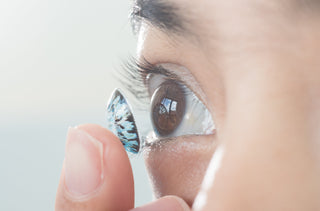Swollen eyelids, or palpebral edema, can be an embarrassing and uncomfortable problem for many people, impacting not only appearance but also general well-being. Understanding the underlying causes of this problem is essential to finding effective solutions. It's important to consult a healthcare professional for an examination to determine the root cause of swollen eyelids and explore appropriate treatment options for relief and improved comfort.
Causes of Swollen Eyelids
- Allergies: Seasonal allergies or allergic reactions to cosmetic products can lead to swollen eyelids.
- Conjunctivitis: Inflammation of the conjunctiva, the membrane that covers the eye's surface, can cause the eye to become red and swollen.
- Eye fatigue: Visual stress caused by prolonged use of computer screens or cell phones can lead to a feeling of swelling around the eyes.
- Infections: Bacterial or viral infections such as orbital cellulitis can cause painful swelling of the eyelids.
- Trauma: Injuries or blows to the eye area can cause eyelid edema.
Solutions and Treatments for Swollen Eyelids
- Cold compresses: Applying cold compresses to the eyelids can reduce swelling and relieve discomfort.
- Antihistamines: Over-the-counter antihistamines can help reduce eyelid inflammation in case of allergy.
- Eye drops: Lubricating eye drops can relieve eye irritation and inflammation.
- Eye rest: Taking regular breaks when using digital devices can reduce eyestrain and eyelid swelling.
- Medical consultation: In the event of persistent swelling, we recommend consulting an optometrist for diagnosis and appropriate treatment.
Statistics and external sources
According to a study by the American Academy of Ophthalmology, nearly 80% of cases of swollen eyelids are caused by allergies or eye infections. Moreover, according to data collected by the National Eye Institute, women are more likely to suffer from swollen eyelids than men.
In conclusion, swollen eyelids can be a symptom of various medical conditions, from allergies to infections. It's essential to consult a healthcare professional if swelling persists or is accompanied by other symptoms such as pain or blurred vision. Following the appropriate treatment advice can relieve discomfort and restore eye comfort.





















































